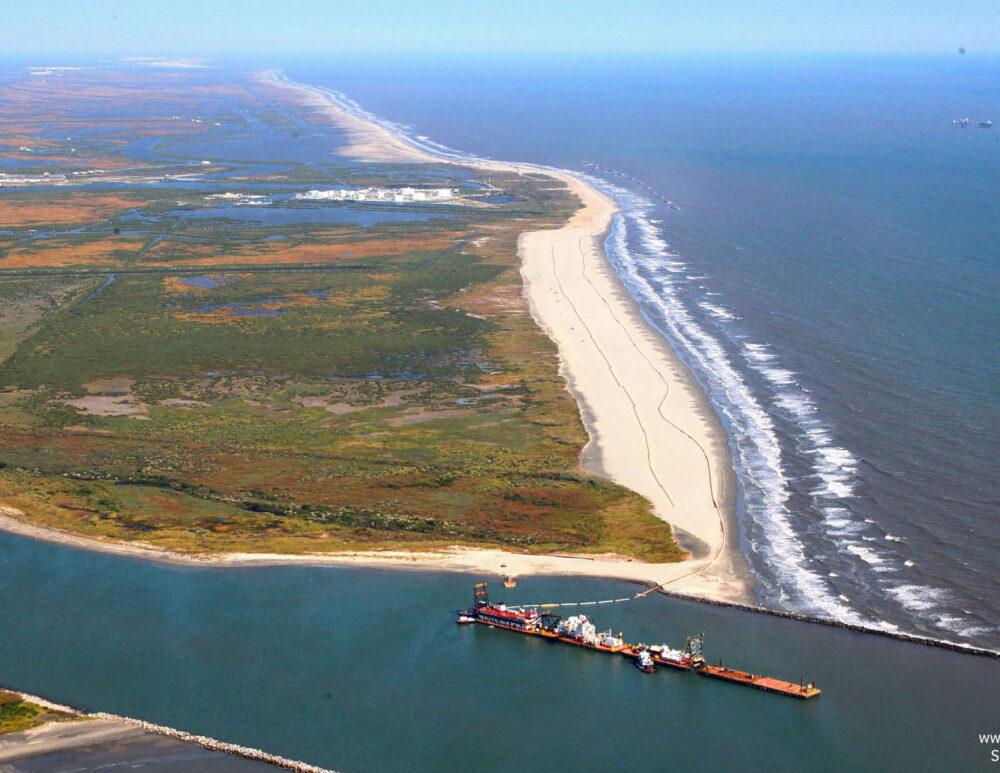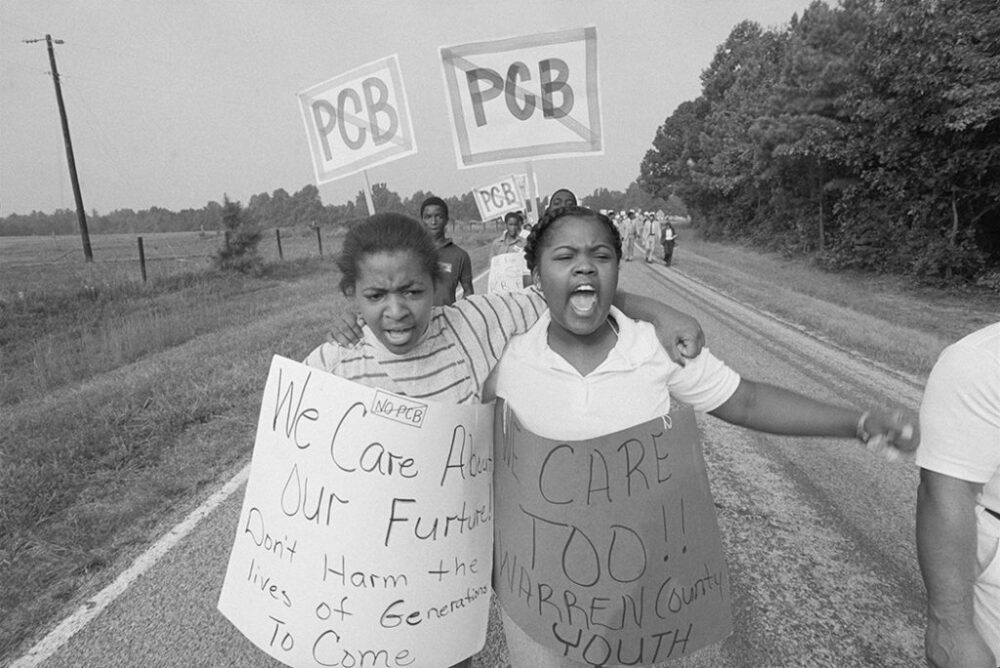We have much more to do and your continued support is needed now more than ever.
The Earth Tomorrow Summer Institute Brings Environmental Justice to Youth
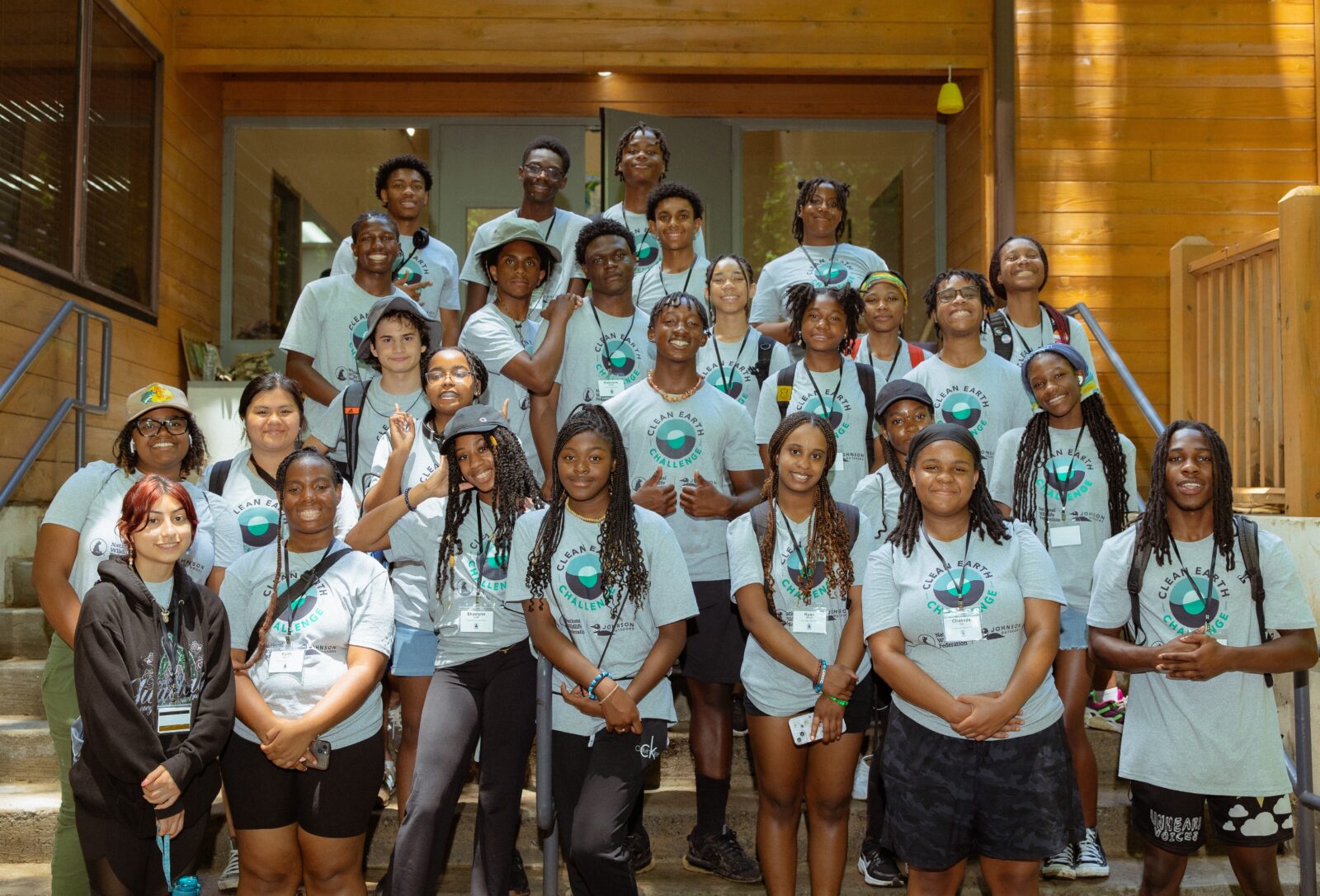
In an urban setting 5 miles south of downtown Atlanta, we walked under the shaded canopy of trees to visit Grandfather Beech. Standing tall and proud at over one hundred sixty years old, naturalists at the West Atlanta Watershed Alliance (WAWA) pointed to initials scrawled on its bark that date back generations, introducing the idea of Leave No Trace and opening an inquiry for participants – what traces do we want to leave behind?
This past summer across two different cities– Atlanta, Georgia, and Houston, Texas– high school students from the greater metropolitan areas participated in the Earth Tomorrow Summer Institute. This summer marked the twenty-second year of the Atlanta program; and its successful relaunch in Houston. Earth Tomorrow is a year-round program that introduces high school youth in frontline communities to environmental justice and leadership. For the budding activists this was a chance to explore the intersection of history, environmental justice, policy, education, and activism. Over the course of six days students attended a host of sites designed for experiential learning, spanning the richness of Atlanta and Houston’s ecology, historic Black communities, economic centers, and institutions of higher learning.
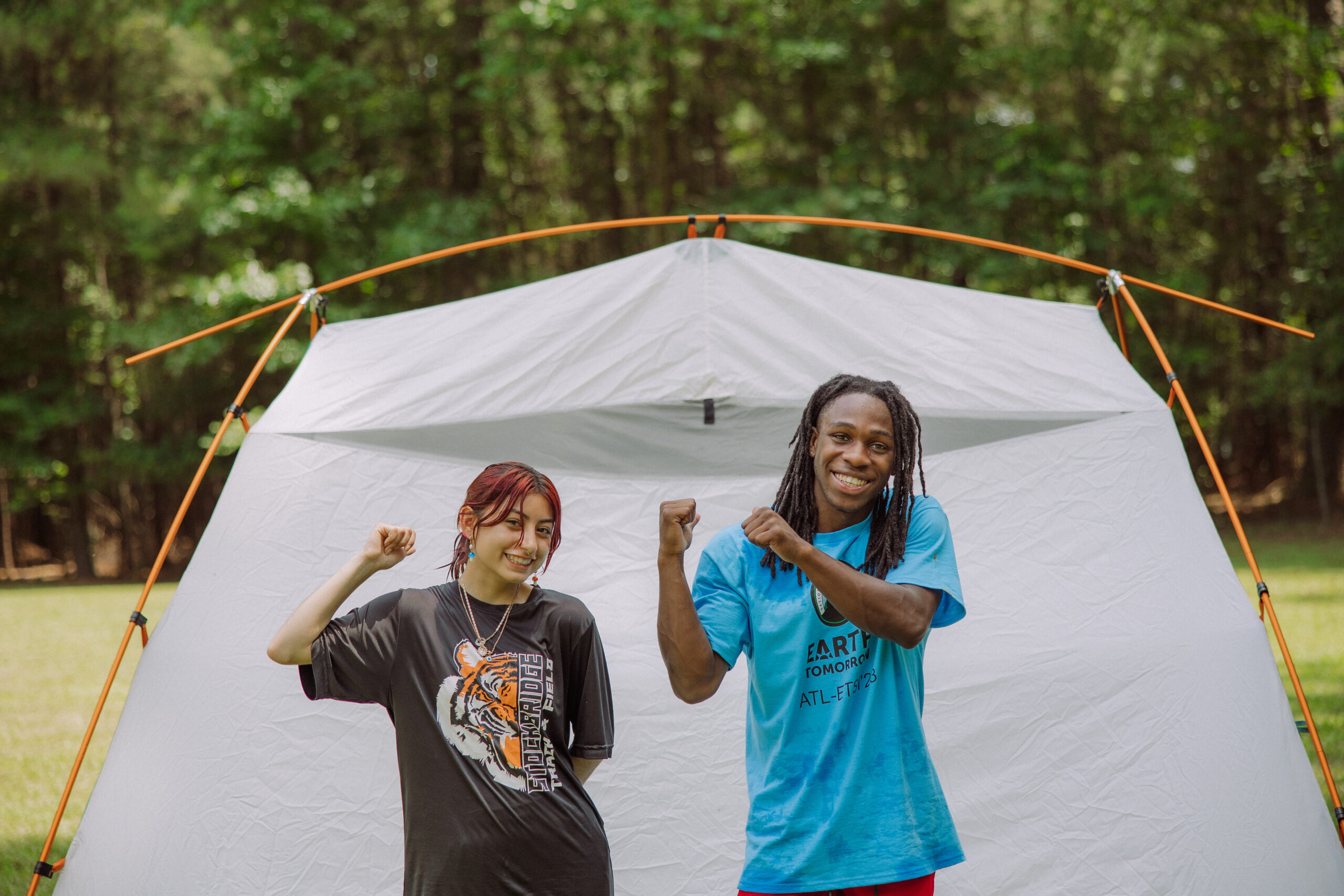
History is often told from the perspective of the powerful, and storytelling plays an important role in Earth Tomorrow and environmental justice. A chorus from community activists across Houston and Atlanta gave voice to the environmental injustices that have threatened marginalized communities. Doris Brown, a resident of Northeast Houston, spoke to the formation of West Street Recovery – demonstrating how climate disasters like Hurricane Harvey inordinately affect communities whose neighborhoods are denied resources and influence because of inequitable politics that target the marginalized. Walking through urban West Atlanta, we were given a living timeline of lax corporate oversight and racism at the now named Westside Lead Superfund Site – a designation reserved for the most toxic sites in the United States. In the historically Black neighborhood, lead-contaminated soil has created untenable land and disease for its residents.
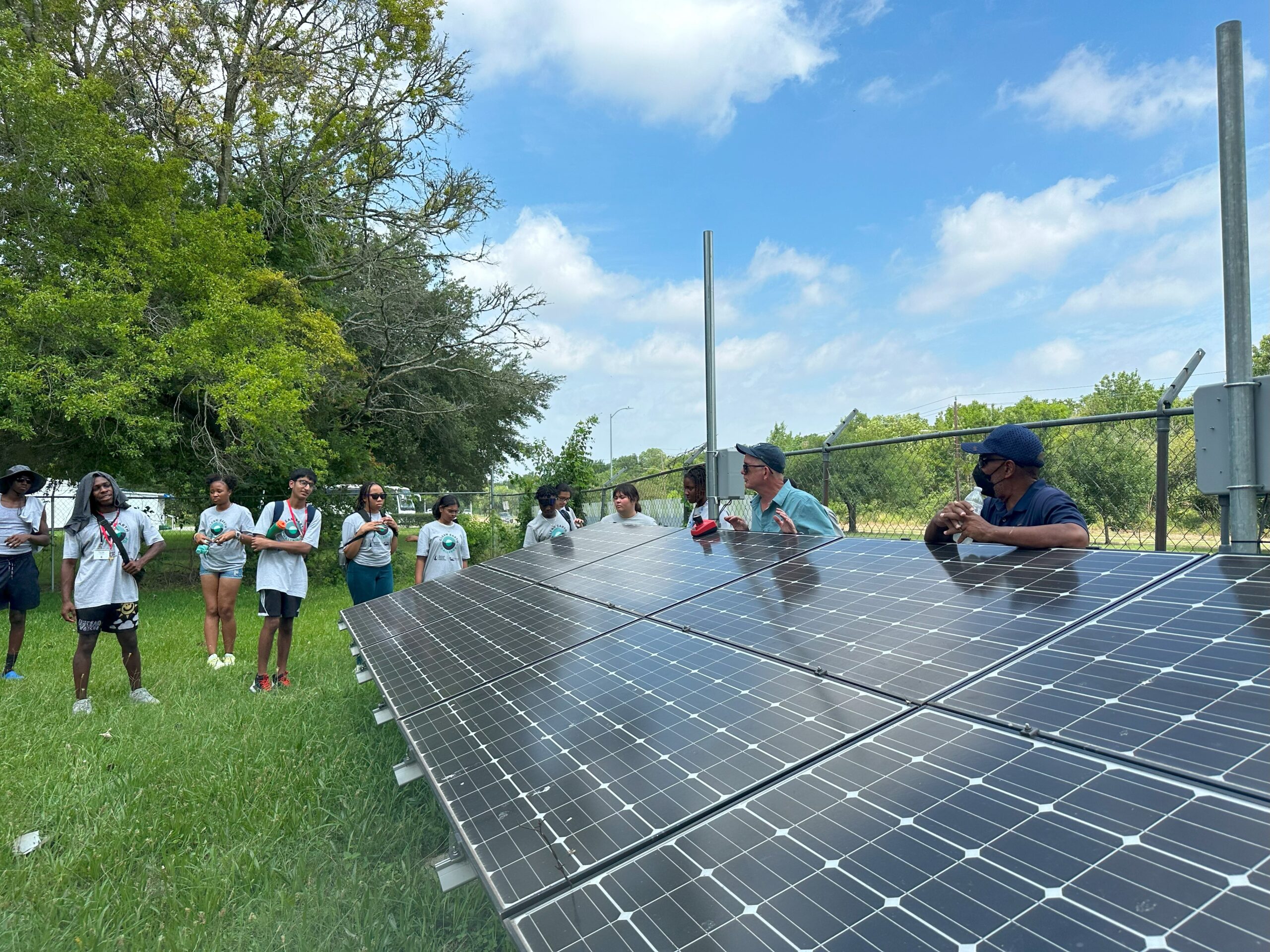
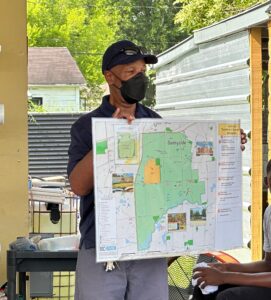
These site visits evinced civic duty, demonstrating the strong fabric of community present and the collaborative solutions being implemented. In Atlanta, employees of WAWA shared how politics, engineering, and city planning can work together to design parks that encourage biodiversity, recreation, and flood mitigation. Bioswales and creative playground construction give children a place to play while also improving watershed management. In Houston’s Sunnyside, a historic Black community, students were witness to the inspiration of local neighbors who band together to make real change. Home to an approximately 240 acre disused landfill, the neighborhood highlights the real and serious consequences of environmental injustice and racial policies. Efrem Jernigan from South Union Community Development decried leaving politics to the politicians. His tour showed the plans of residents, former engineers, veterans, and others to reutilize the former landfill as one of the country’s largest urban solar farms, creating education and jobs for the residents of Sunnyside.
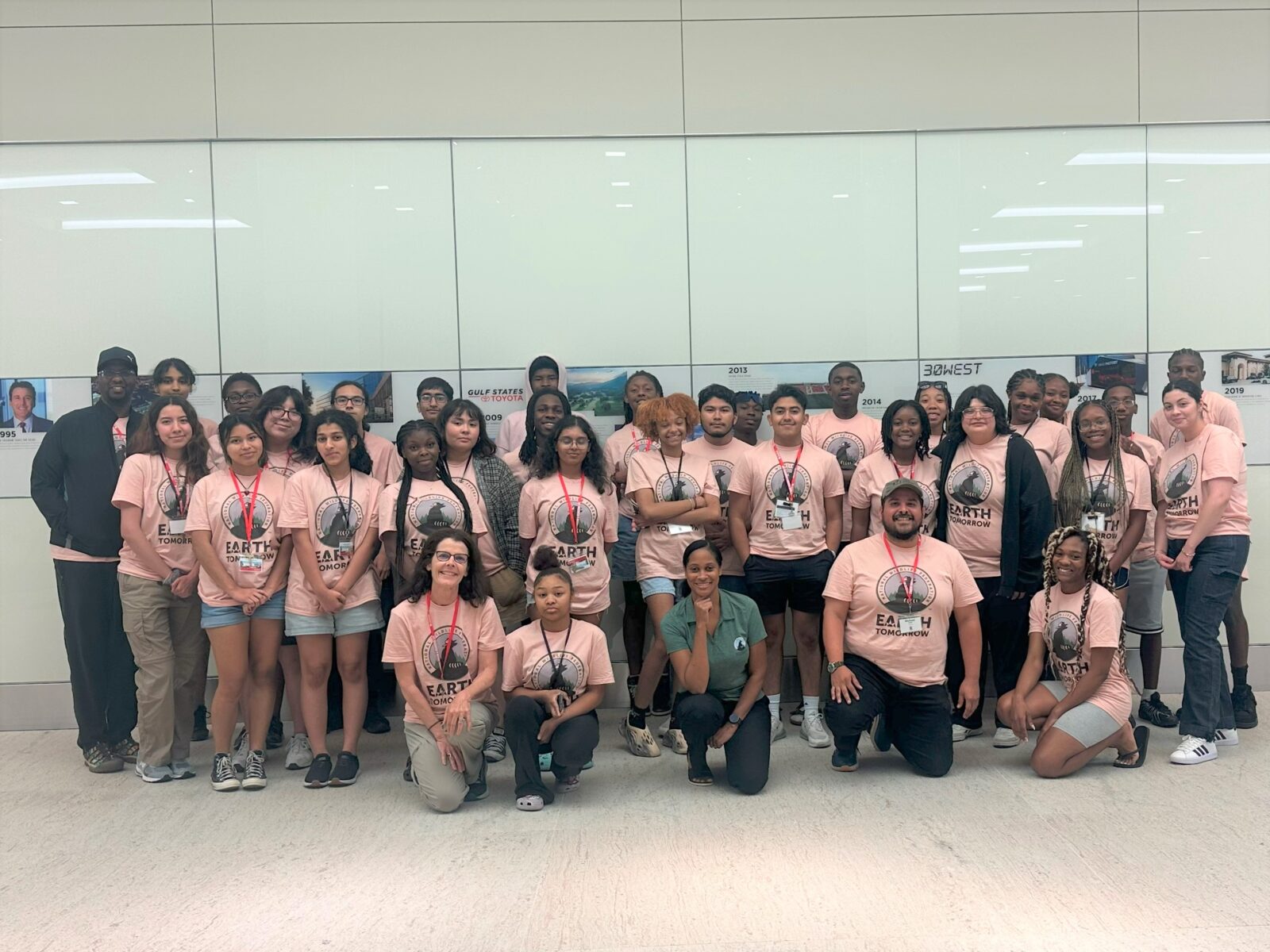
Throughout the week, participants learned to find support and camaraderie in each other. Under the safety of NWF’s leadership, participants had the freedom to extend out and develop new leadership skills, tackle opportunities, and build character by virtue of being driven outside their comfort zone. An overnight campout gave weight to the “why” in the work we do. Joy and laughter filled the night skies of George Washington Carver State Park and Brazos Bend State Park, where we enjoyed s’mores around a campfire and explored trails on a night hike.
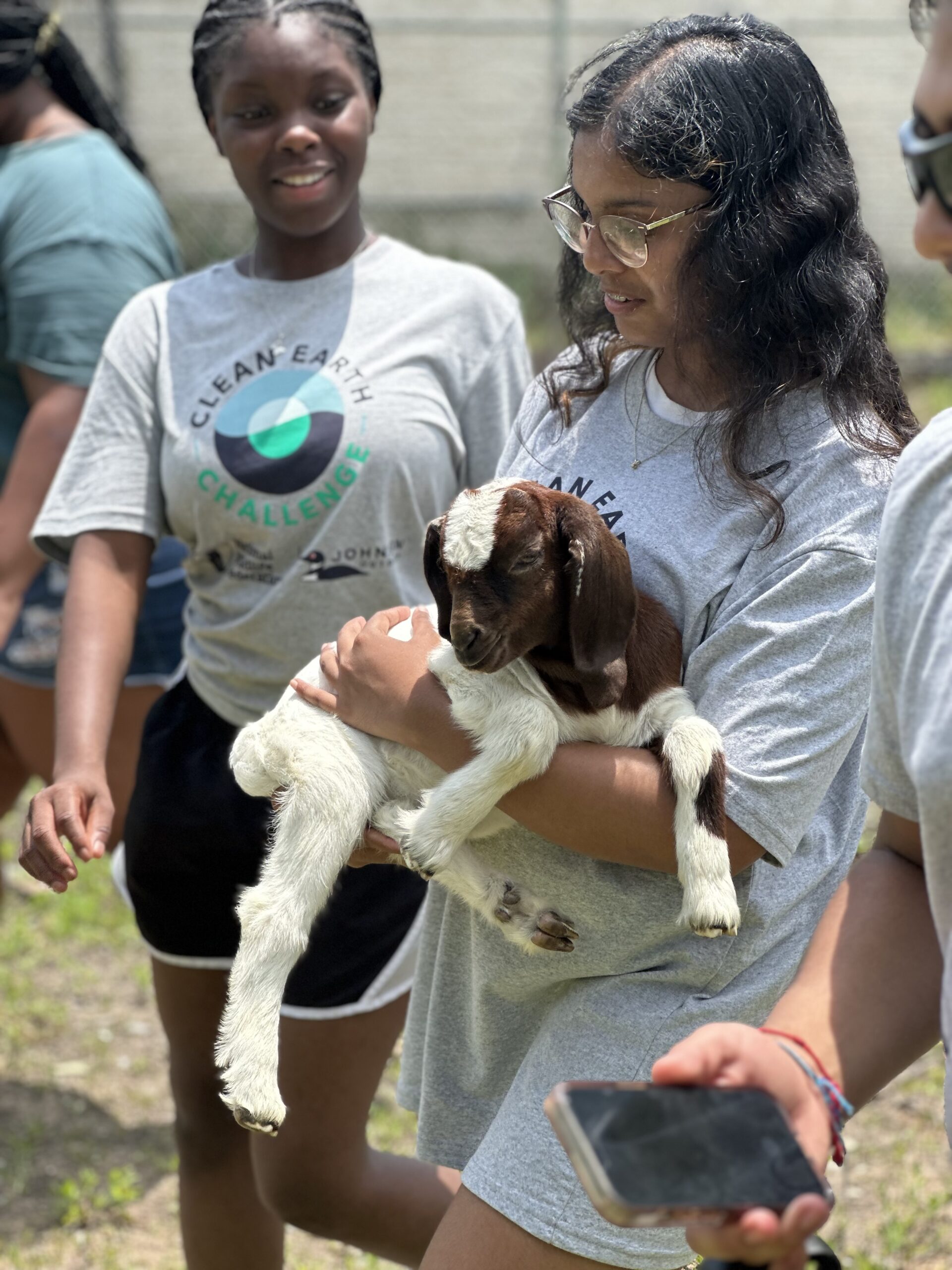

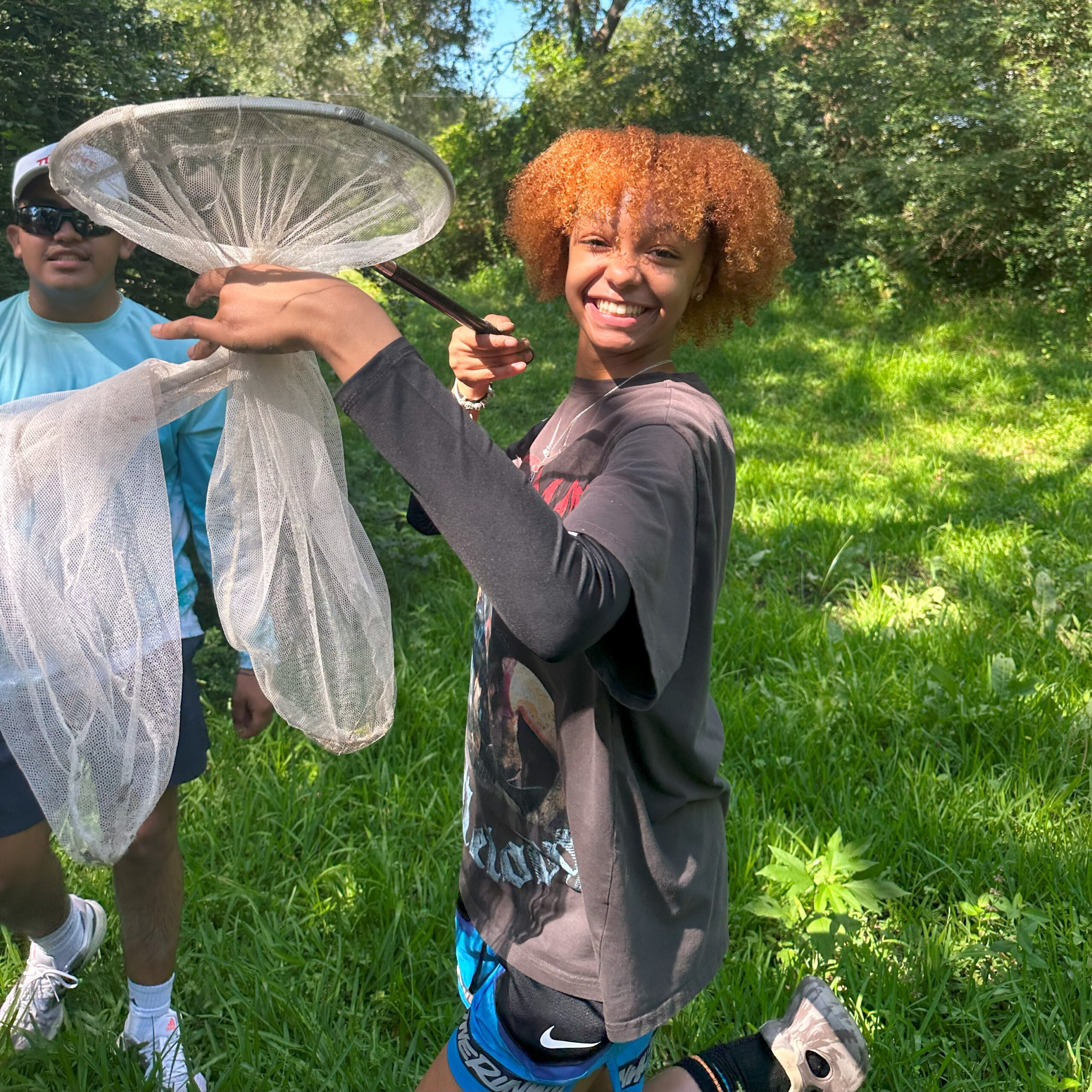
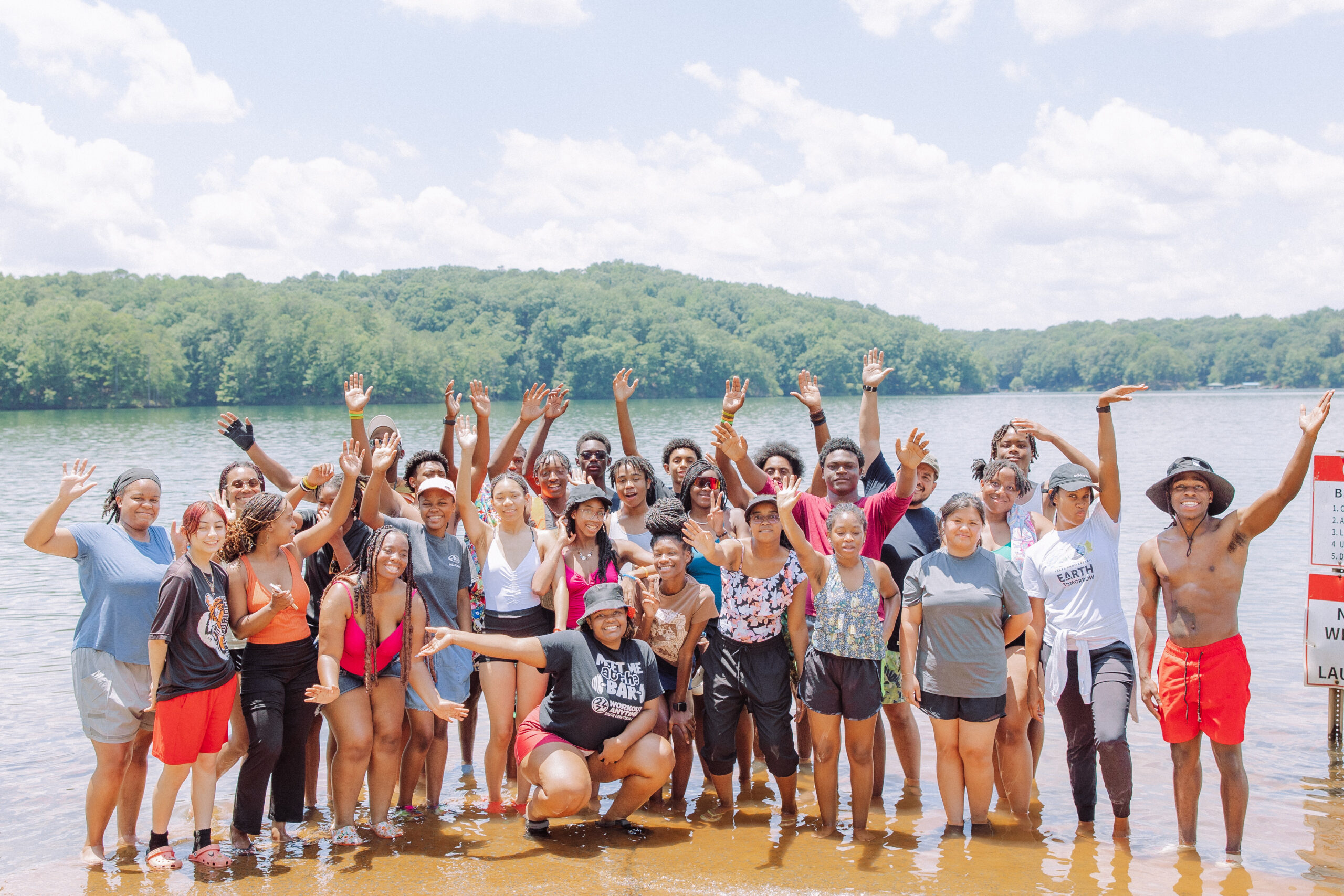
The strength of the Summer Institute, and the fabric of this cohort, came together for Earth Tomorrow’s closing luncheon. Drawing from the lessons of the week-long institute, participants drafted plans for environmental justice movements in their communities and schools. Participants from this summer’s Earth Tomorrow Summer Institute will continue to develop skills and put their ideas and plans into action, working on their high school campuses to recruit more leaders and the support of their community.
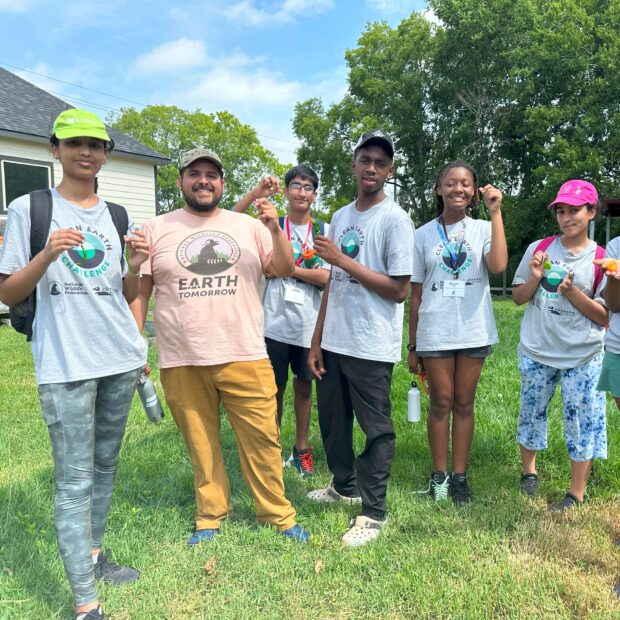
Getting to experience the Earth Tomorrow Program in both Atlanta and Houston, I’m reminded again of Grandfather Beech. He does not stand alone; in the soil of its land is an underground network that connects the forest in a symbiotic relationship. Built over time, these networks rely on the progress of previous generations to lay the path for future generations. My hope is that our students will continue to build their relationships, rely on one another, and grow their connection to their community.
-Michael Valdez, Education Program Manager, Earth Tomorrow Houston



















